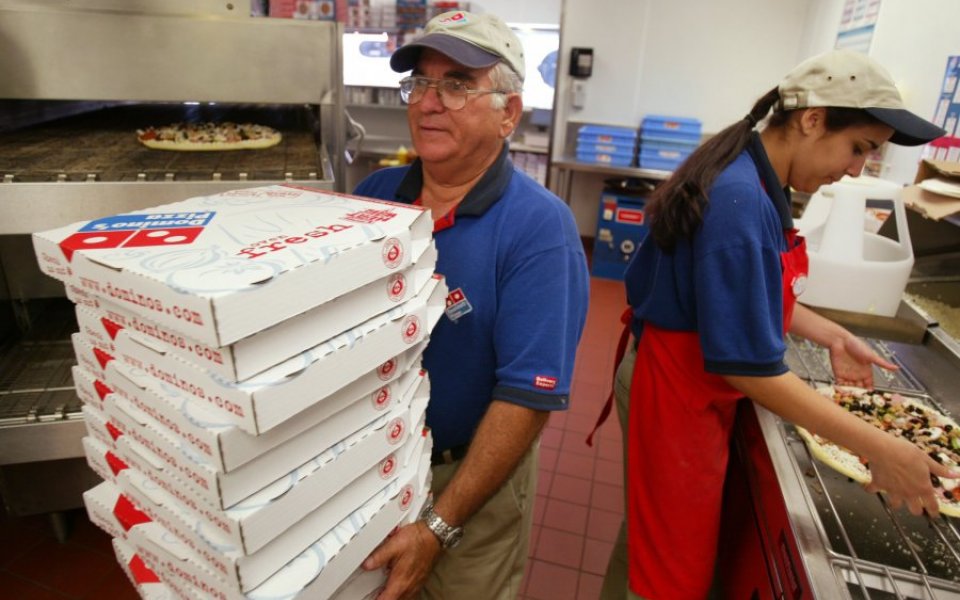Domino’s is putting more cheese on your pizza thanks to drop in food prices

Ordering Domino's Pizza this evening? Then you may find that the pizza chain has been more generous with the cheese topping on your Margherita, as a drop food prices helped contribute to a jump in sales and profits last year.
Chief executive David Wild said its franchisee saved around £11m thanks to record low cheese prices, a drop in the cost of wheat and a fall in fuel costs. Customers also benefited, he said, with an extra helping of melted cheesiness on their pizza.
"We are putting more cheese on the cheese and tomato pizzas. We actually increased the amount of cheese on that quite significantly," he said, adding that the company has also slowed down the speed of its ovens to give the pizzas a slightly better bake.
The company, which was celebrating its 30th anniversary last year, reported a 17.8 per cent jump in pre-tax profits to £73.2m in 2015, with like-for-like sales up 11.7 per cent.
Domino's fast growing digital business now accounts for 77.7 per cent of all UK delivered sales after growing 30 per cent last year, while 48.6 per cent of online sales are made using its app.
Wild said the company has improved the app's so-called pizza tracker so that Apple Watch wearers can track the where their pizza's journey and when the driver is going to deliver it.
It has also invested in its digital platform so that it can retain information like credit card details and a customer's favourite pizza so that it can move towards a "one-touch ordering".
The group, which owns the master franchise for the UK, Republic of Ireland, Switzerland, Liechtenstein and Luxembourg, has 931 sites including 869 in Britain.
It opened 61 stores last year and plans to open around 65 in 2016, creating around 5,000 jobs.
Commenting on the National Living Wage coming into effect next month, Wild said most of its franchisees are already paying just above the wage: "We are not negative about the National Living Wage. We think it is good for consumer spending because it is putting more money in people's pockets. What we find is that we are not governed by legislation but by what the market is doing and to get the right staff you need to pay the right money."